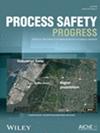改进工艺危害分析 (PHA) 结果,更好地管理采矿业的关键控制:从 PHA 到现场验证
IF 1
4区 工程技术
Q4 ENGINEERING, CHEMICAL
引用次数: 0
摘要
与石油和天然气或化工等其他高危险工艺行业相比,采矿和金属行业的工艺安全管理相对较新。其实践还不太成熟,正在发展中,从其他行业借鉴,并使用国际采矿和金属理事会 (ICMM) 的指导来管理关键控制。本文分享了领先的采矿和金属公司力拓如何改进其关键控制管理实践。重点介绍了该公司如何通过一系列行动提高工艺危害分析 (PHAs) 和关键控制管理活动的质量。这包括明确所使用的方法、开发培训包、修订用于识别关键控制的方法、开发 PHA 促进审批流程和 PHA 促进审批委员会、实施针对内部候选人的培训和辅导计划,以及开发用于监控流程有效性的保证活动。这些行动在 PHA 的总体质量、支持新方法的 PHA 批准程序的有效性以及内部促进能力的发展方面取得了非常令人鼓舞的成果。本文章由计算机程序翻译,如有差异,请以英文原文为准。
Improving Process Hazard Analysis (PHA) outcomes to better manage critical controls in mining industry: From PHA to verification in the field
Process safety management in the mining and metals industry is relatively new compared to other high‐hazard process industries such as oil and gas or chemicals. Practices are less mature and are developing, transferring from other industries, and using the International Council on Mining and Metals (ICMM) guidance to manage critical controls. This paper shares how Rio Tinto, a leading mining and metals company, has improved its critical controls management practices. Focus is put on how the company has improved the quality of its process hazard analyses (PHAs) and critical controls management activities through a series of actions. This covers clarification of the methodology used, development of training packages, revision of the methodology used to identify critical controls, development of a PHA facilitation approval process and a PHA facilitation approval committee, implementation of a training and coaching program for internal candidates, and development of assurance activities to monitor effectiveness of the process. These actions have resulted in very encouraging results in terms of overall quality of the PHAs, effectiveness of the PHA approval process to support the new methodologies introduced, and the development of internal facilitation capabilities.
求助全文
通过发布文献求助,成功后即可免费获取论文全文。
去求助
来源期刊

Process Safety Progress
工程技术-工程:化工
CiteScore
2.20
自引率
10.00%
发文量
99
审稿时长
6-12 weeks
期刊介绍:
Process Safety Progress covers process safety for engineering professionals. It addresses such topics as incident investigations/case histories, hazardous chemicals management, hazardous leaks prevention, risk assessment, process hazards evaluation, industrial hygiene, fire and explosion analysis, preventive maintenance, vapor cloud dispersion, and regulatory compliance, training, education, and other areas in process safety and loss prevention, including emerging concerns like plant and/or process security. Papers from the annual Loss Prevention Symposium and other AIChE safety conferences are automatically considered for publication, but unsolicited papers, particularly those addressing process safety issues in emerging technologies and industries are encouraged and evaluated equally.
 求助内容:
求助内容: 应助结果提醒方式:
应助结果提醒方式:


